Oil Demand
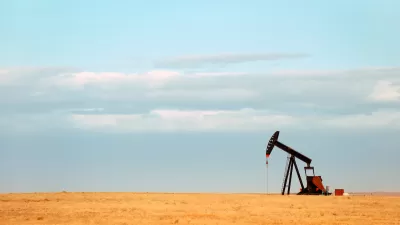
Do Environmentalists Confuse Oil Production With Oil Demand?
Samantha Gross, the director of the Energy Security and Climate Initiative at the Brookings Institution, argues that the key to reducing emissions is to do the hard work of reducing oil demand rather than focusing on ending U.S. oil drilling.
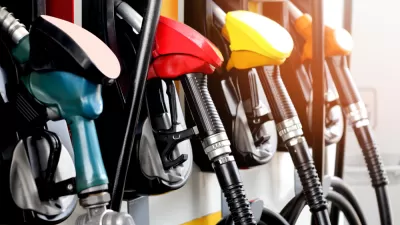
OPEC Plus Decision to Reduce Oil Output Could Lead to Global Recession
A decision earlier this month by a group of the world's largest oil exporters to drastically reduce oil production to stem the decline in oil prices could be a ‘tipping point’ for a global recession, says the International Energy Agency.
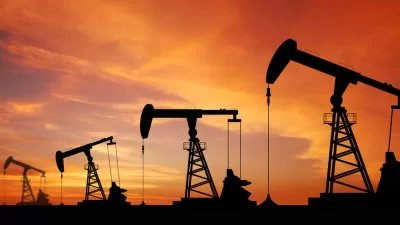
Sanctioning Russian Energy Exports
European leaders chose not to join the U.S. in an embargo of Russian energy products largely because of dependence on natural gas. Similarly, the world needs the 11% of crude oil that Russia exports. What can the U.S. do to lessen this dependence?

Climate Concerns Largely Absent in Auto Showrooms
A consumer survey found that less than a third of respondents considered carbon emissions or the environment when they last purchased a motor vehicle, yet three-quarters of Americans consider climate change a major problem or crisis.
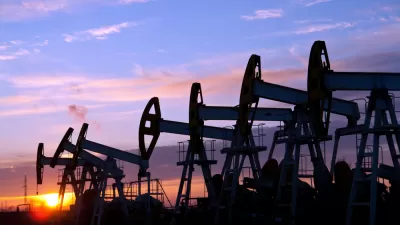
Just What the Planet Needs: More Oil Production
A surge of oil from four countries—Norway, Guyana, Canada and Brazil—will more than compensate for slowing growth of U.S. oil production. The new sources might cause oil prices to dip to $50 a barrel and slow the transition to electric vehicles.
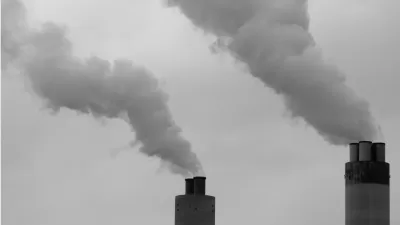
No Good News for Climate Stabilization From a New Worldwide Energy Report
Last month, the Paris-based International Energy Agency released its annual "Global Energy & CO2 Status Report." Energy consumption grew 2.3 percent with fossil fuels accounting for 70 percent on the increase. CO2 emissions jumped 1.7 percent.

Major Increase in Global Carbon Emissions Projected for 2018
The report from the Global Carbon Project, an international group of scientists who track greenhouse gas emissions, comes as a surprise as emissions had been relatively flat for the last four years. Global emissions this year will increase 2.7%.
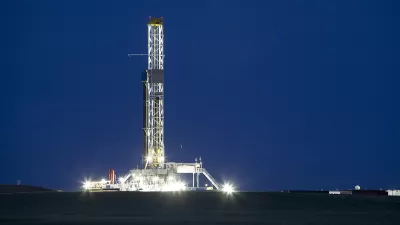
Petrochemical Industry to Drive Major Growth in Oil Demand
A new report from the International Energy Association projects that petrochemicals will be the largest driver of oil consumption, greatly increasing greenhouse gas emissions and offsetting the effect of electric vehicles on oil demand.

Energy Demand and Carbon Emissions Increased in 2017, Just Not Everywhere
The International Energy Agency found that China and India were responsible for 40 percent of the increased energy demand. The biggest decrease in carbon dioxide emissions came from the U.S., largely due to increased use of renewables.

Energy Transformation Predicted in 12 Years
By 2030, the world's consumption of oil will drop due to increasing electric vehicle sales, according to a report by Bank of America. Other researchers disagree on the timeframe. The report is useful for highlighting the term, "peak oil demand."

Are Reports Predicting a Future of Electric Vehicles Exaggerated?
David Yager, an oil industry consultant, writes that recent reports predicting electric vehicles will eventually outsell those with internal combustion engines are vastly exaggerated, notwithstanding national bans on future sales of such cars.

2016 Sets New U.S. Driving Record as Gas Prices Remain Low
So much for the 2015 record of 3.148 trillion miles. Last year saw a cumulative travel increase of 2.8 percent to 3.218 trillion miles, setting a new record as cheap gas contributed to increased driving.

World Demand for Oil to Increase in 2016
It's the best of both worlds for OPEC as cheap oil prices increase demand while high-cost rival oil producers are forced to close down wells according to an OPEC study released Oct. 12. And it was all planned.
OPEC Sees U.S. Motorists as Their Ally
An IEA report suggests that oil prices have bottomed-out, are now on the rebound, and that demand for OPEC's oil will start rising next year. OPEC predicts that U.S. oil consumption will increase after years of decline, thanks to U.S. motorists.
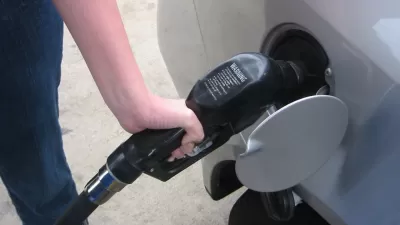
Whatever Happened to Declining Oil Consumption in the U.S.?
Last year, the U.S. increased oil consumption by two percent, surpassing the increase in China for the first time in more than a decade according to a new IEA report. How does this increase square with peak car, peak VMT, and peak oil consumption?
Is Peak Oil Demand In Sight?
With driving and oil consumption declining across many developed countries due to long-term structural shifts, Nick Butler sees reason to believe the world will soon reach peak oil demand.
U.S. Oil Consumption On The Decline...Permanently
For political, technological, and even demographic as well as economic reasons, don't expect American oil consumption to increase over 2007 levels. $3 gas is here to stay, and the days of the petrol-gulping SUVs and guzzlers may be numbered.
Urban Design for Planners 1: Software Tools
This six-course series explores essential urban design concepts using open source software and equips planners with the tools they need to participate fully in the urban design process.
Planning for Universal Design
Learn the tools for implementing Universal Design in planning regulations.
Heyer Gruel & Associates PA
JM Goldson LLC
Custer County Colorado
City of Camden Redevelopment Agency
City of Astoria
Transportation Research & Education Center (TREC) at Portland State University
Jefferson Parish Government
Camden Redevelopment Agency
City of Claremont


































